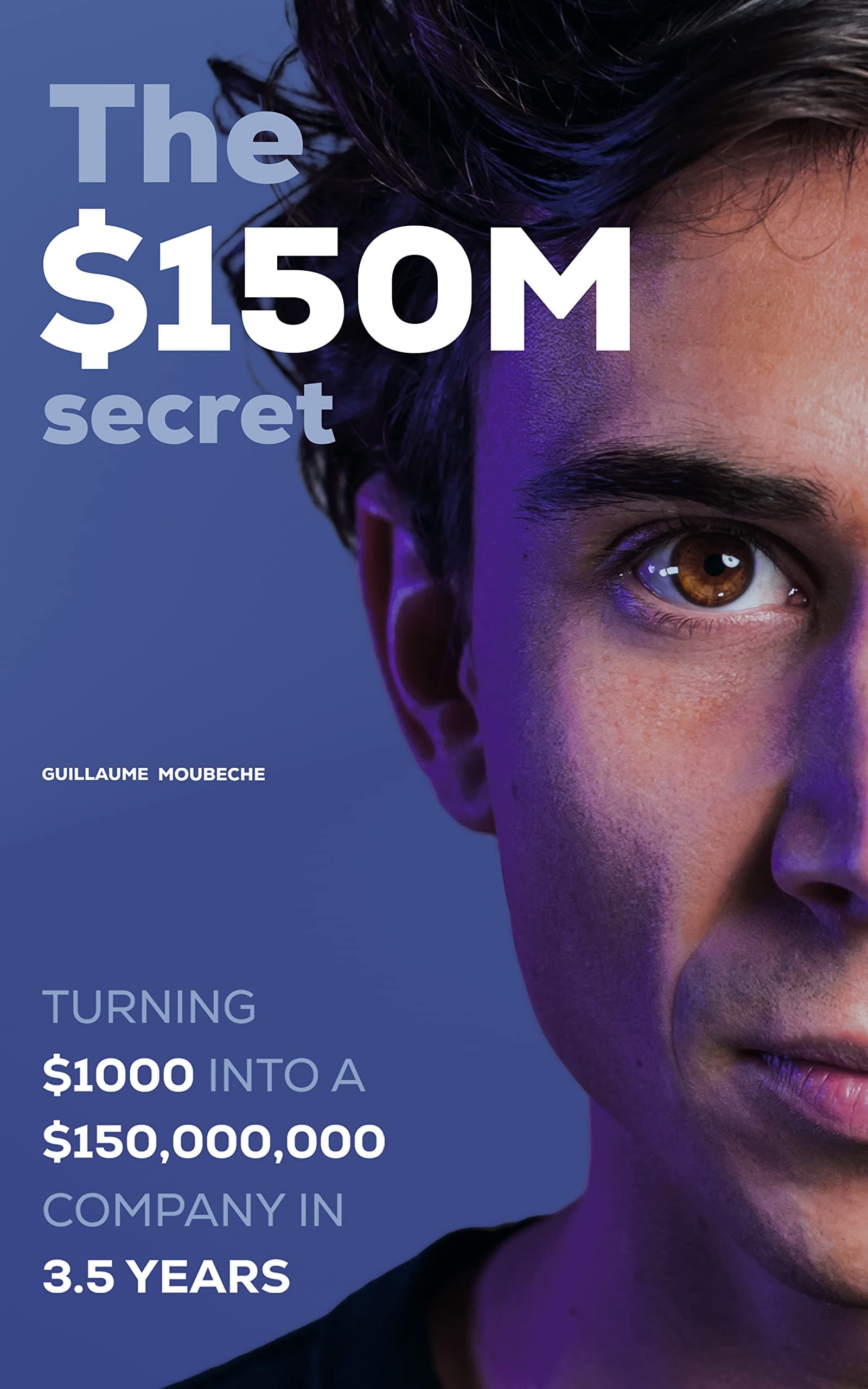The $150M Secret - Summary and review

🚀 Summary: The $150M Secret in 30 seconds

Contents
The misconception about "the perfect idea"
Hint, it doesn't exist..
The perfect idea is something that gets a lot of people stuck. And get's in the way of them starting a company.
The books starts off, with Guillaume sharing some common lies you often hear about starting and running a business.
5 lies you’ve bought into from rich/successful people
Guillaume shares the 5 big lies, that rich and successful people tell us.
Lie #1: Great ideas make successful businesses
Execution > idea. This is why you can build in public, share your ideas freely. Of 200,000 people hearing about your financial and awesome company - how many will actually go through with copying you and building a competitor?
Ideas are easy. Execution is not.
So don't get stuck chasing the perfect idea. Instead, execute and know when/how to pivot.
Lie #2: Risk everything or nothing
You hear about the extremes. Either:
(A) "VC backed 16 year old Stanford-dropout growing big billion dollar unicorn in AI", or
(B) Sifted: "Hopin raised >$1B, valued at $7.75B - goes bust and sells assets for $15M".
It's black and white. Nothing in between.
But, that's not how the reality of business works.
There are tons of small and mid-sized businesses that never grow to become unicorns. They don't make the headlines.
Profitable companies that DON'T WANT TO become unicorns. That sit on nice profit margins, life a good life, and eventually never have to work a day in their life again. WITHOUT becoming a unicorn. WITHOUT ever raising one check from VC.
VC and media often feed this hype - that the game of startups is binary - an all or nothing play. That is what they profit from. And what feeds their agenda. But, not necessarily the best thing for you as a founder.
Lie #3: You need to be ambitious and have a 5-year business plan to succeed
Ambition is not always something you start out with. It grows over time. Set up smaller goals first. And surround yourself with people that are ambitious and high-performers.
The best founders are the ones that adapt quickly. NOT the ones with a 5-year plan.
Lie #4: You need a lot of money initially to build a successful business
How much did you raise? How big is your team? That's common vanity metrics of how well you are doing.
"How much money did you get from investors?"
I told him that we didn’t get any. And then he said: “then you don’t have a start-up”
- Guillaume Moubeche
In reality, those are useless metrics. And you don't need alot of capital to get started.
Guillaume (and many others) started his business with just $1000. Instead he charged his customers proper money from the start.
Put more of your time into the first customers, like a consultancy that would have costed them 10X. That way you can build up the base of ARR, without needing a ton of money upfront.
Lie #5: In order to build an international company you must raise money
Everyone believes that if you want to sell in a specific country, you need to have a physical shop there. Truth is the total opposite.
In SaaS, if you target the right communities, growth hack, and have a PLG type of offering with easy onboarding, etc. You can scale as well, or even better remotely in other markets.
Guillaume shares how he, with lemlist, saw an even higher conversion to paid from their beta amongst people outside France vs. in France (their home market).
Now we will look into the process of getting started building your company, how to grow and scale it, and eventually Guillaume's guide on exit.

Need cheat codes to grow your SaaS in 2026?
The startup founder's playbook to hack growth on Reddit. Proven tactics to:
- ✅ Find high intent buyers for your SaaS
- ✅ Get large exposure to relevant prospects
- ✅ Show up in AI search and Google without SEO
- ✅ Get deal flow from Reddit
Buy the book: The $150M Secret 👇
If curious in more, you can buy the full book on Amazon: Print | Kindle✍️ My top quote
This is, in my opinion, the top quote from the book The $150M Secret.
Quote 1
Stop looking for ideas - start looking for problems to solve
Frequently asked questions (FAQs)

Q: Who is Guillaume Moubeche?
Guillaume Moubeche is a French serial entrepreneur who grew Lemlist & Lempire, from $0 to $20M ARR in 5 years. And did so bootstrapped. He frequently shares tips on how to grow a profitable SaaS business w/o VC on LinkedIn and Youtube.
Want to learn more about growing SaaS companies?

